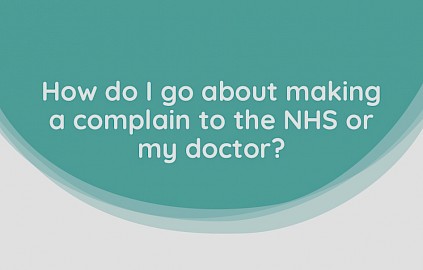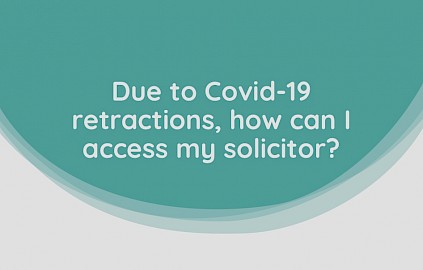I was awake during surgery!
If you think that you have been awake during surgery, then something has gone wrong with the anaesthetic and you may be able to claim compensation for what is called ‘anaesthetic awareness’.
Anaesthesia remains a mysterious and inexact science. There is no standard dose of chemically inducing a coma, meaning anaesthetists can’t always accurately measure what they do – resulting in thousands of patients waking up on the operating table every year.
Waking up during surgery, also referred to as anaesthetic awareness, is probably one of the most, if not the most, traumatic and frightening experiences that can happen. Being conscious during surgery causes patients to experience high levels of pain and also results in long-term psychological consequences.
There are different levels of awareness. Some may only have brief recollections, whereas others will recall specific moments or sensations of the surgery, including the incision to the skin, pulling and tugging during the surgery etc. Due to the administration of muscle relaxants which temporarily paralyses the body, patients who are conscious during surgery are unable to communicate they are awake, adding to their distress.
As a result of this people often suffer psychiatric injury including Post-Traumatic Stress Disorder. They have symptoms including very vivid nightmares and flashbacks, anxiety and panic attacks. This can be extremely debilitating and can affect their ability to work and enjoy their normal day-to-day life. These patients also find it difficult to be back in the hospital environment and it may cause them anxiety and concern if they need to undergo further surgery under general anaesthetic. They may even develop a fear of medical treatment, which can be dangerous if this causes them to avoid necessary procedures.
What should happen if a patient reports being awake during surgery?
If a patient complains of being awake during surgery, it is important a doctor visits them to identify exactly what has happened. It is necessary to differentiate between dreams or recall of events that represent real awareness. Denying the patient’s version of events may contribute to a worse psychological outcome for them so it is important to apologise for their experience and express some sympathy. Detailed written records of these processes are vital.
The patient should receive adequate psychological support afterwards, not only in the form of a regular visit by the anaesthetist but with the referral for counselling or psychotherapy if necessary. The patient’s GP should also be informed so that this information can be taken into account when future treatments may be planned.
How can Medical Solicitors support your claim for anaesthetic awareness negligence?
Many people who experience anaesthetic awareness will have lots of questions and want an explanation as to why this happened to them. Sometimes these answers aren’t clear cut.
As experienced solicitors that only deal with medical negligence claims, our specialist team has vast experience in helping clients gain the answers they are looking for by examining each individual case to work out what happened.
Just as important, we have established strong working relationships with leading medical experts who we can call upon to provide evidence and judgement about your experience as well as assess your ongoing needs. This partnership means we can often determine what should have been done to prevent your anaesthetic awareness occurring.
This could be that your anaesthetist didn’t obtain a thorough medical history from you at the pre-operative assessment. There are many factors that will impact the dosage of drugs you will need to be put to sleep, such as allergies or how much alcohol you consume. You may be genetically more resilient to opiate anaesthesia. Sometimes, human error may have played a part, such as syringes not being labelled correctly, or machines and equipment not being properly checked for faults.
Contributing factors of anaesthetic awareness include:
-
Misjudging the dose needed for a patient
-
Problems tolerating side effects of anaesthetic agent
-
Failure to detect that a patient is in a state of awareness, or light anaesthesis
-
Problems with equipment and drug delivery
As a Lexcel accredited law firm that has been praised for its compliance and case management, Medical Solicitors can help make your medical negligence claim for anaesthetic awareness as stress-free as possible. We have offices across Yorkshire in Sheffield, York and Hull, so our medical negligence team is well positioned to help clients across the UK who are looking to make a medical negligence claim for anaesthetic awareness.
We conduct most of our clinical negligence claims under ‘No Win, No Fee’ agreements, also known as Conditional Fee Agreements. So, our clients do not have to worry about how they can possibly afford to pay for the legal costs of anaesthetic awareness claims. You have nothing to lose in speaking to us.
How often does being awake during surgery happen?
Doctors now recognise that patients being awake during surgery occurs more than many previously thought. Research now shows that around one or two patients out of every 1,000 experience some form of awareness during surgery.
When can anaesthetic awareness happen?
For as long as anaesthetists have been putting people to sleep, patients have been waking up.
When you go in for surgery, the anaesthetists and surgical team ensure you are given enough drugs to last the duration of the procedure. This is usually a combination of a hypnotic to send a patient to sleep, analgesics for pain control, and a muscle relaxant to create temporary paralysis. Together, these stop the nerves passing signals to the brain so patients don’t feel anything.
But there is no concrete way of knowing how deeply a patient is anaesthetised, or even if they are unconscious at all. Medical professionals originally relied on signals from the body, then blood concentration of chemicals would aid calculations. Today, they monitor the brain’s electrical activity in a patient.
Anaesthetic awareness can occur during surgery but also after surgery, in the recovery room. Also, after surgery in intensive care, where patients are kept sedated or tranquilised. It can occur whilst patients are paralysed (and intubated) and are connected to life-support machines.
How do patients know if they have been awake during surgery?
There are different levels of consciousness and what exactly constitutes awareness can be confusing.
Some patients may dream around the time of surgery which they can mistake for awareness. Patients may also recall sounds or conversations as well as the presence of airway devices still in their body as they regain consciousness.
On the other hand, true cases of being awake during surgery can be difficult to detect. Some patients report anaesthetic awareness immediately after surgery. Others may not realise they were aware until days or even weeks after the event.
A well-established method of detecting awareness involves the use of what is called a ‘Brice interview’. This method involves asking the following questions:
- What was the last thing you remembered happening before you went to sleep?
- What was the first thing you remembered happening on waking?
- Did you dream or have any other experiences while you were sleep?
- What was the worst thing about your operation?
- What was the next worse thing?
Who is at greater risk of anaesthetic awareness?
As previously noted, anaesthesia is an inexact science that involves a lot of guesswork. It may not be possible to prevent every case from happening, but it is possible to identify high-risk cases via pre-operative checks.
A thorough history and examination can identify whether a patient is at greater risk of suffering anaesthetic awareness.
Specific factors may include:
- A history of previously having reported feeling awake during a surgery.
- Drug abuse. Also being a long-term user of opiates for chronic pain, heart and vascular problems.
- A previous history of difficult intubation or anticipated difficult intubation.
- Heart, Caesarean, emergency and trauma surgery carry higher risks of anaesthetic awareness.
- The anaesthetic technique may also increase the risk, if muscle relaxants are used.
- Also, the risks increase with the where the anaesthetic is given just by inhalation (this is called ‘TIVA’), rather than through the veins or if rigid bronchoscopy is used.
Once risks have been identified your doctors can plan to reduce them.
Methods for reducing the risks during surgery:
- Sedative drugs (benzodiazepines) can be used at the start of anaesthesia, particularly if a difficulty is anticipated the intubation stage.
- There are other methods for managing blood pressure and heart rate, other than adjusting the level of anaesthetic. For example, using a vasopressor or an inotrope rather than continually reducing the anaesthetic concentration.
- Monitoring brain activity in a patient (through ‘EEG’) is a technique. However, this is not routinely used in the UK.
- It may also be worth considering using depth of anaesthesia monitoring when available.
Despite precautions and good technique, some cases of anaesthetic awareness will still occur. Anaesthetists’ records should be clear about when drugs were administered and in what dose. It should also be clear what forms of monitoring were used.









